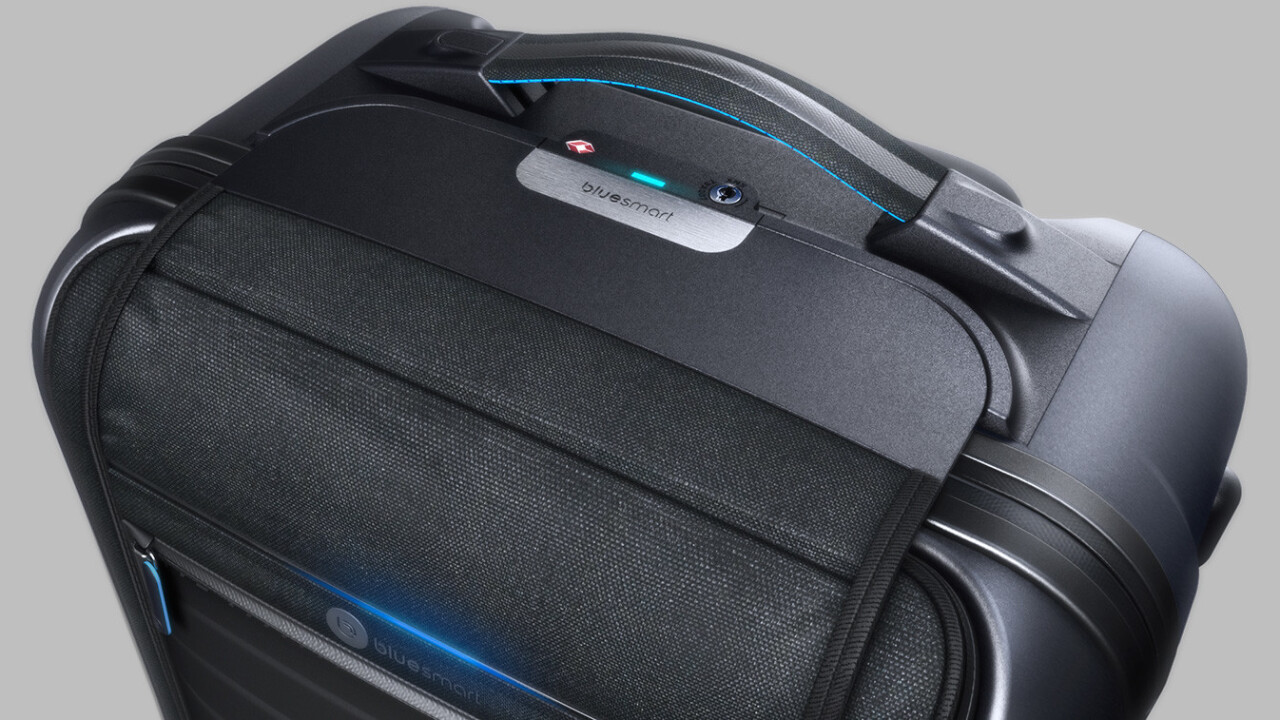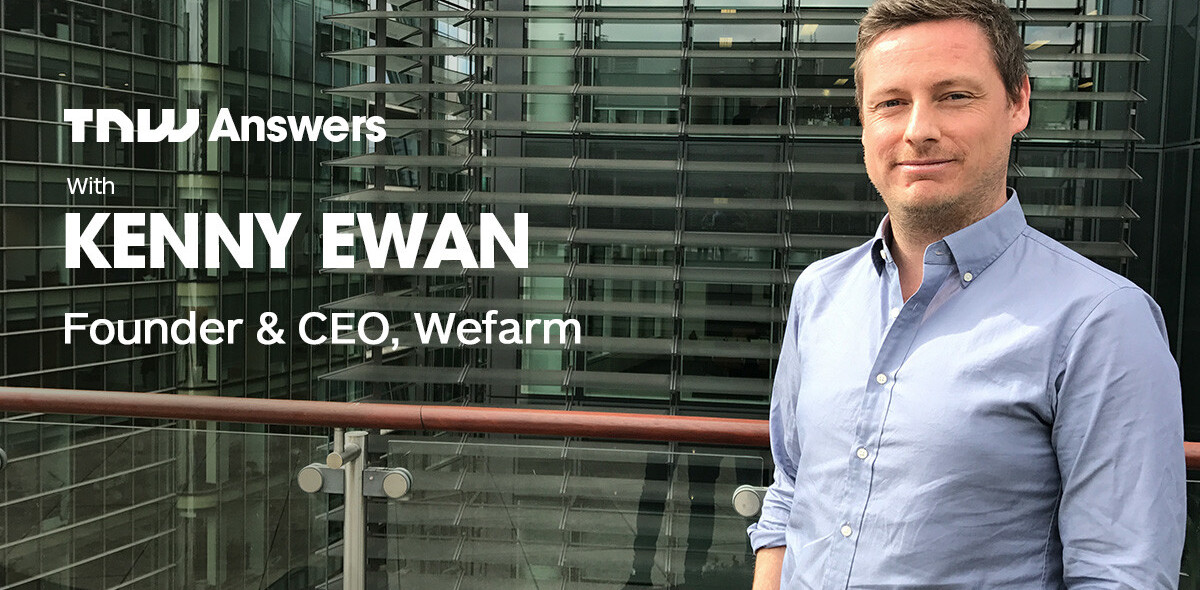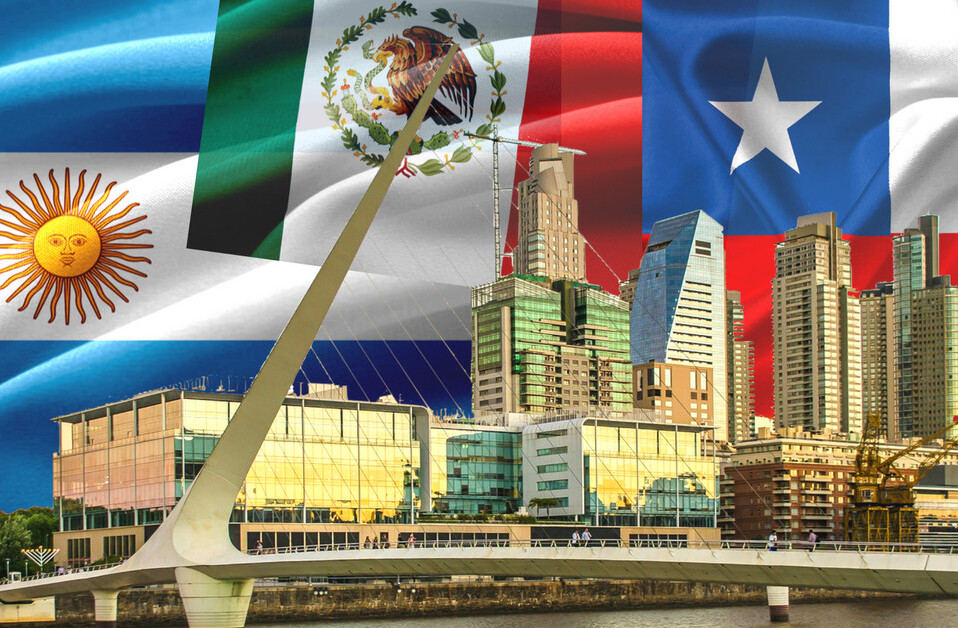
IoT startup Bluesmart has partnered with Spanish carrier Telefónica, the company announced today at Mobile World Congress in Barcelona. The operator will be providing Machine-to-Machine (M2M) connectivity for Bluesmart’s upcoming smart luggage.
 As you may remember, Bluesmart led a successful Indiegogo crowdfunding campaign that reached its initial funding goal in only 121 minutes, and went on to raise more than $2 million in pre-orders from 8,000 backers. Its core product is an innovative carry-on suitcase that boasts features such as location tracking, device charging, Bluetooth locking and app-based remote controlling.
As you may remember, Bluesmart led a successful Indiegogo crowdfunding campaign that reached its initial funding goal in only 121 minutes, and went on to raise more than $2 million in pre-orders from 8,000 backers. Its core product is an innovative carry-on suitcase that boasts features such as location tracking, device charging, Bluetooth locking and app-based remote controlling.
It is now official that many of these functionalities will be enabled by a Telefónicapowered SIM card that Bluesmart will include inside of its luggage. The chip will be connected via 3G to Telefónica’s M2M network, making it theoretically possible for Bluesmart’s clients to track their suitcases at all times. “With this partnership, we hope to reduce the hassle that travelers have to experience when airlines lose their bags,” Bluesmart’s co-founder and CEO Diego Saez-Gil explains.
Partnering up
That Bluesmart would team up with at least one carrier is hardly a surprise, and could easily be guessed from the suitcase’s product description. However, Telefónica is one of the sector’s largest players, and its backing gives the campaign a whole new level of credibility.
On one hand, it proves that it met the due diligence standards of a large corporation which trusts in its ability to start shipping later this year. On the other hand, it also gives the company more leverage if new transportation regulations threaten to challenge its custom-approved product in the future.
In addition, the carrier’s global reach will help Bluesmart keep its promise that its suitcase will work regardless of location. Not only is Telefónica directly present in 24 countries, but it also has agreements helping it reach almost all of the roaming world.
Beyond the carry-on
 There’s no doubt that Telefónica hopes to be taken seriously as a M2M provider. Not only is the M2M division staffed with 200 professionals, but it also has its dedicated website and Twitter account. Both are aimed at promoting the carrier’s M2M solutions in a wide range of IoT verticals, from consumer electronics and connected fridges to fleet management and connected cars. As a matter of fact, Telefónica announced a few months ago that it had partnered with electric car brand Tesla to provide M2M connectivity for the Tesla Model S in Europe.
There’s no doubt that Telefónica hopes to be taken seriously as a M2M provider. Not only is the M2M division staffed with 200 professionals, but it also has its dedicated website and Twitter account. Both are aimed at promoting the carrier’s M2M solutions in a wide range of IoT verticals, from consumer electronics and connected fridges to fleet management and connected cars. As a matter of fact, Telefónica announced a few months ago that it had partnered with electric car brand Tesla to provide M2M connectivity for the Tesla Model S in Europe.
 By partnering with Bluesmart, Telefónica is adding a new product to its trove, and maybe more. As a matter of fact, today’s announcement refers explicitly to a possible expansion of the agreement to other innovative products and services for connected travelers. “Our mission at Bluesmart is to empower travelers and make the planet a smarter and more connected place,” Saez-Gil says.
By partnering with Bluesmart, Telefónica is adding a new product to its trove, and maybe more. As a matter of fact, today’s announcement refers explicitly to a possible expansion of the agreement to other innovative products and services for connected travelers. “Our mission at Bluesmart is to empower travelers and make the planet a smarter and more connected place,” Saez-Gil says.
From Argentina to Y Combinator
The fact that Bluesmart describes itself as a “technology company that develops Internet-connected travel products” gives a fairly clear idea of the journey it is embarking on. Its ambition and ability to ‘make something people want’ likely played a key role in earning the team a coveted spot at Y Combinator.
 Interestingly, this could also mark the beginning of a new trend towards increased diversity within the program’s ranks. Although Bluesmart is headquartered in Mountain View, CA, several of its team members come from Argentina, including Saez-Gil himself. This makes it one of a handful of startups led by Latin Americans that have caught the eye of Sam Altman and his team. According to Guatemalan entrepreneur Christian Van Der Henst, 3.7% in Y Combinator’s Winter 2015 batch are Hispanic, including Bluesmart and his own startup Platzi, as well as Colombia’s The Mid Game and Argentina’s DemocracyOS.
Interestingly, this could also mark the beginning of a new trend towards increased diversity within the program’s ranks. Although Bluesmart is headquartered in Mountain View, CA, several of its team members come from Argentina, including Saez-Gil himself. This makes it one of a handful of startups led by Latin Americans that have caught the eye of Sam Altman and his team. According to Guatemalan entrepreneur Christian Van Der Henst, 3.7% in Y Combinator’s Winter 2015 batch are Hispanic, including Bluesmart and his own startup Platzi, as well as Colombia’s The Mid Game and Argentina’s DemocracyOS.
While these numbers are still small, they reflect the maturation of a generation of Latin American entrepreneurs who have grown to meet Silicon Valley standards. Saez-Gil’s trajectory, which we’ve been following since 2011, is a good illustration of this trend. As you may remember, he previously founded budget accommodation booking platform WeHostels, backed by several key players of Latin America’s startup scene. An exit later, he’s now ready to fly again — hopefully to new heights.
Image credits: Telefónica; Bluesmart; Y Combinator
Get the TNW newsletter
Get the most important tech news in your inbox each week.



